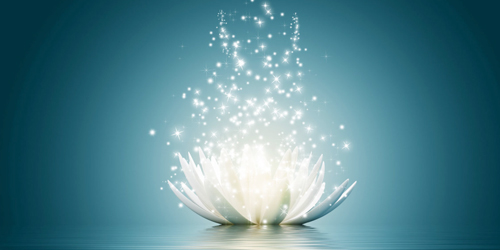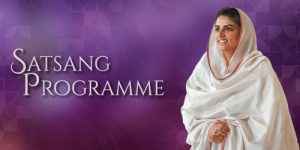Just as we see perfection around us in the natural world, the perfection of a human being is no exception. He, too, is perfect by his very nature. However, this perfection – shrouded under many layers of psychological conditioning – can only be experienced by realising the truth of ourselves, nature, and the universe. In the absence of this realisation, many imperfections overwhelm, disturb and even waste this rare opportunity for human life to be salvaged.
Fortunately, Satguru Mata Sudiksha ji (Head of the Sant Nirankari Mission) is today providing inspiration towards this realisation by offering a glimpse of the true essence that flows through, drives, and sustains all that we see and experience. When this inspiration is taken and acted upon, then life flows naturally, perfectly and the true potential of human birth is realised and optimised.
Moreover, when life flows naturally, it takes the path of least resistance and the journey becomes effortless. The need to create a perfect life dissipates and we begin to relax. We simply enjoy, as observers, the wonderful and miraculous events, and experiences on offer, without them taking any lasting effect on us. Whilst being fully engaged and participating where appropriate, there is a sense of detached attachment with the understanding that everything is transient, and that we too are simply passing through. Of course, we still have a requirement to fulfil our duties and work towards the upkeep of ourselves, our families and our communities, but this also becomes easy and is never burdensome.
This human life is often compared to a drop of rain which falls at the top of a hill and starts to flow down, slowly growing into a trickle, a stream, and then a river until it finally reaches the estuary to merge with the ocean. Often, it evaporates into the atmosphere to form a cloud and start the journey all over again, or it simply remains absorbed in the ocean.
If we observe how the water flows down, we notice that the fastest flow is always in the centre of the stream, the part that is furthest away from the edges. The water near the edge begins to interact with the land and this interaction causes the viscosity of the water to increase, making it harder to move, thereby slowing down the flow of water in this area. If we were to float an object on this water it would naturally move towards the centre where the flow is fastest. And as long as there were no other external forces applied, it would stay in the centre for the entire journey. By staying in this position, the object can enjoy the most efficient, fastest, and smoothest journey all the way down, without facing obstacles along the way. Even if there were boulders in the way, the object would be cushioned from them by the slower flowing water, which would divert the fastest flow away from the obstacle.
Similarly, our life can also be made efficient, smooth, and enjoyable (or perfect) if we just allow it to flow and follow its natural course. Unfortunately, as we have all witnessed, this is often not the case. For, as we grow, we start interacting with the world around us and get attached to it, much like the slower flowing water near the edge of the stream. To remove us from this attachment and allow better flow, the first pledge of the Sant Nirankari Mission is to be observed. That is to surrender our body, mind, and wealth to the Almighty Formless, and to use these assets as if were mere trustees. If we can bring this into practice, we can start moving in the natural flow of life. As with the free-flowing object on water, we too can then begin to enjoy the journey through life, observing all the wonders along the way, but remaining detached from them.
It would transpire from this that the only reason for imperfections in our lives is that we have somehow interfered with the natural flow. We have formed attachments with the transient, physical world through our education and experiences. To correct this, it is reasonable to suggest a reversal of the process. We need to reduce our attachment and our reliance on the physical to improve our relationship with the spiritual, for only this is eternal, stable, and all-pervading. His Holiness Baba Hardev Singh ji often referred to this as a process of ‘unlearning’. Rumi, the Persian poet, also stated that ‘unlearning is the highest form of learning’. We must untangle from old habits and ways of thinking to make space for a new, better way of being.
As we place attachments to the material world in their rightful place and start to adopt a more faithful and simplistic existence, it heralds a renewed sense of peace and relaxation. Of course, it is not easy to break the habits of a lifetime and essentially change the value systems we have built up since birth. However, this is exactly what is required if we truly yearn to live a happy, peaceful, enjoyable and fulfilled life. I believe this is what Rabindranath Tagore was referring to when he stated that ‘it is very simple to be happy, but it is very difficult to be simple’.
Fortunately for us, help is at hand to support us through this difficult task today in the form of the Sant Nirankari Mission. The Mission is there to support all human beings to follow this path of life through the realisation of the true essential source of life, often referred to as God. Through this realisation, we come to understand how little control we have over life and how necessary it is to develop faith in the Formless, which enables us to surrender to the flow.
We develop an understanding that all happiness and sorrow in the world is nothing more than the two extremes of a pendulum swing, which continues to swing endlessly, as that is its very nature. With this understanding, we can move towards the origin (i.e. along the axis towards the pivot of the pendulum). As we do this, the effect of the swings between happiness and sorrow is reduced, and we begin to enjoy a more balanced, calm, and blissful life – a state of equipoise.
To summarise, perhaps it is a little like learning to swim. If we did nothing, we would naturally float, but the fact that we do not have enough faith to let go, we start to interfere in various ways. This inevitably makes us sink, until such time that we develop enough skill or understanding to trust the water, propel ourselves forward and stay afloat. When we learn to ‘let go and let God’ in this way, we begin to flow naturally. If we remain in this natural state, the perfection of life is realised.
Munminder Gill, Wolverhampton, UK








